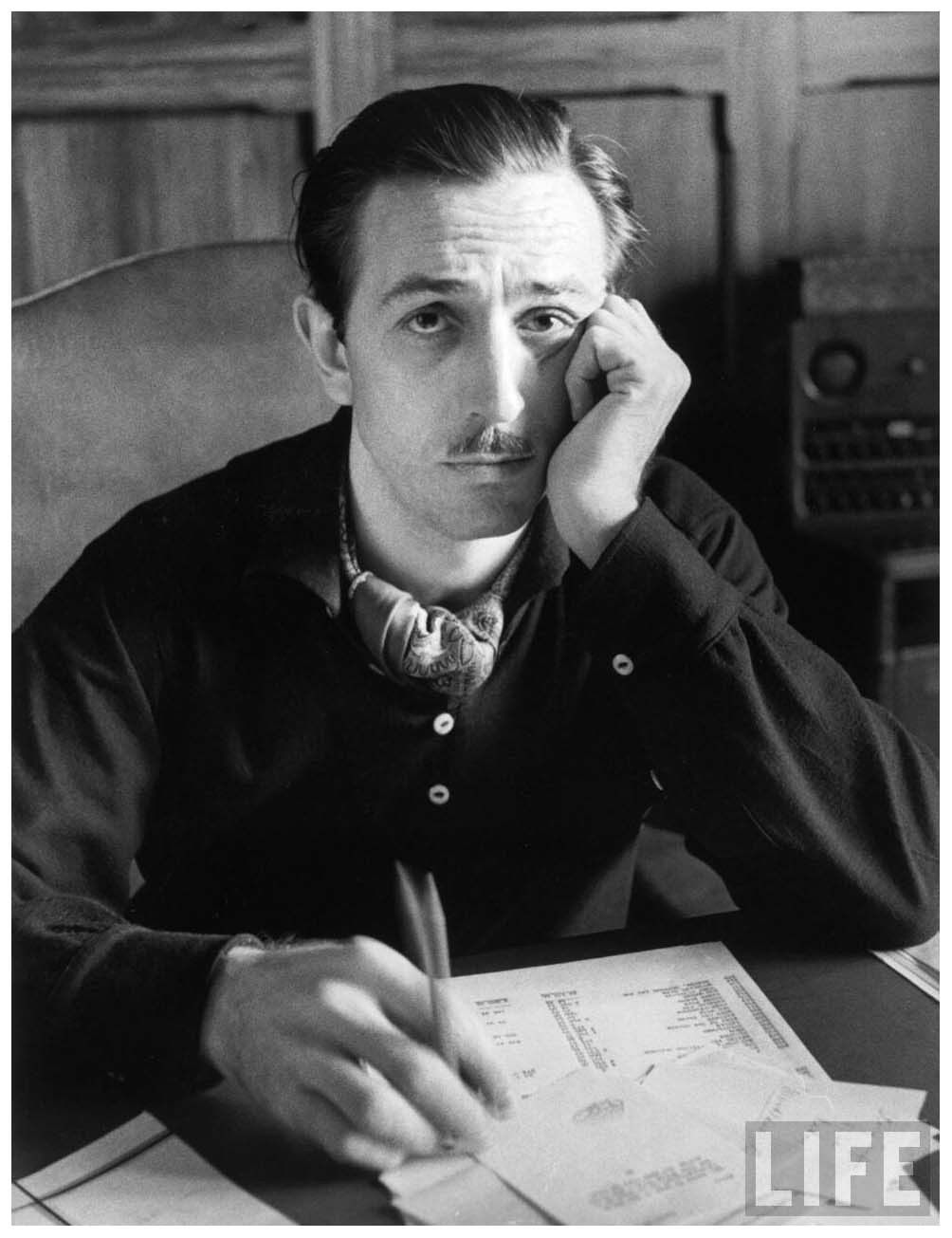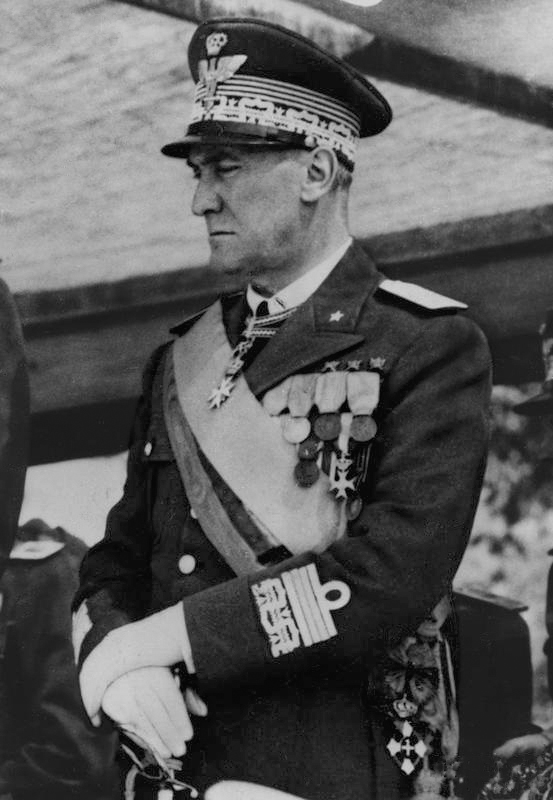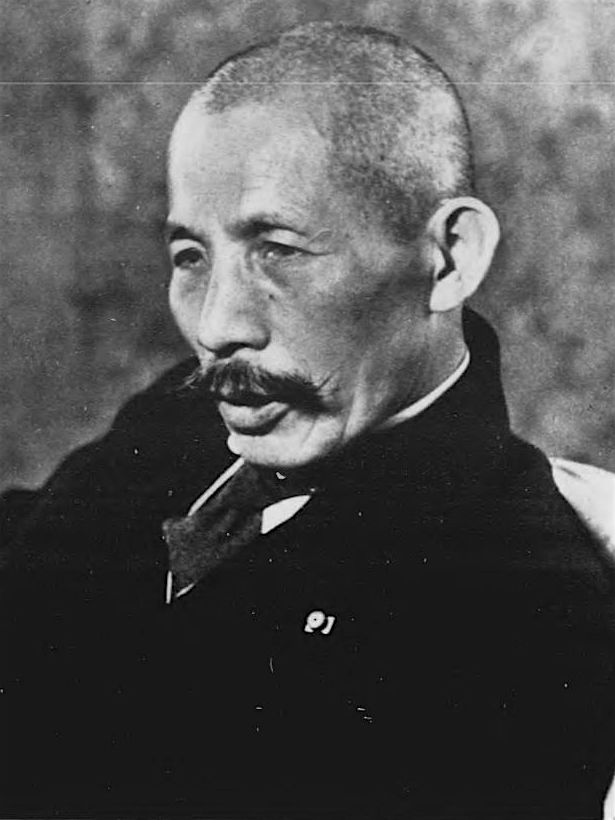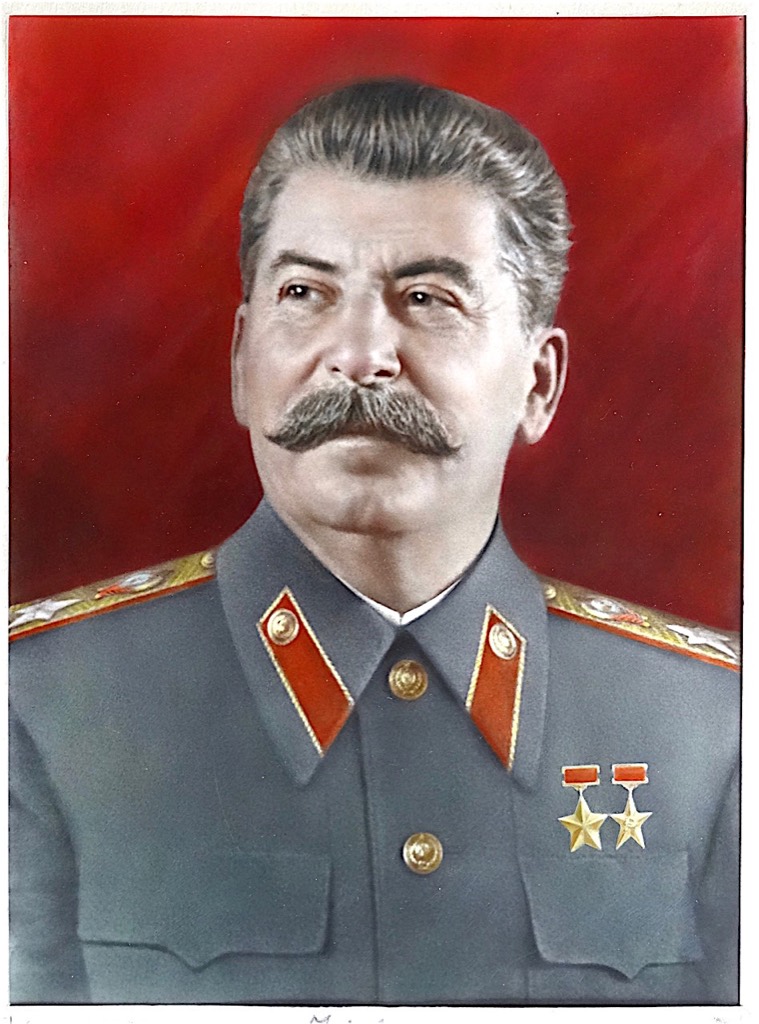You are using an out of date browser. It may not display this or other websites correctly.
You should upgrade or use an alternative browser.
You should upgrade or use an alternative browser.
Rosenberg's Reich: The Myth of The Twentieth Century
- Thread starter X_X
- Start date
A Gap In Nature

“Sometime within the early 1930s, the last wild Tasmanian Tiger, also known as the Thylacine, passed away. This strange marsupial was hunted to extinction as a pest by Australian farmers and soon its existence became limited to zoological gardens, where it soon perished there as well. They were seen as mere oddities rather than species worth preserving and thus there was no breeding of them and they soon passed on like moas, dodos, great auks, passenger pigeons and so many more amazing species. It is a parable for ages, a symbol of this Holocene implosion, and a reminder that humans are surely the greatest changers of Earth’s biomes since the asteroid that killed the dinosaurs.
“After an often-self-centered century of bigotry and vainglory, we must understand more than ever than we are not the sole inhabitants of this earth. Scientists are just beginning to comprehend the effects of our climate-changing actions and how this will change our fate for centuries. The population losses of animals and plants are astronomical, with many species losing up to 90% of their population from just a few decades ago. This is the new alien natural landscape we’ve birthed, a completely different global ecosystem than even our parents lived in. It makes one question what the future holds. But we cannot wait, and we shall not. We must take action. And not as individuals or nations but as a planet on the whole. Can mankind admit beyond his hubris that there is other life as valuable as his own?”
-Excerpt from the BBC Documentary Attenborough Down Under
Last edited:
Spazio vitale

“If Japan was dangling our naïve hopes of eternal world peace over an abyss, then it was the Italians who cut the rope.” -Albert Einstein
“Once this city of Rome expanded its glory across all of civilized Europe, Africa, and Asia, an Italian Empire which was the peak of civilization, the zenith of mankind. The Mediterranean was not an ocean, but a pond to these proud Romans and now the Duce plans to return our people to this lost glory. The expansion of our borders into Ethiopia is a godsent, it will in the coming decades become a generous gift from Mussolini, a home front for millions of Italians in this bountiful Eden. Living Space, Living Space! The international community wishes to yield our growth of Western civilization! So be it, they are but on the wrong side of history. Let them side with the black slavers and cannibals. We know who will have the last laugh!”
-Excerpt from an Italian propaganda news article on the invasion of Ethiopia
“They bomb my land and gas my people! They lock us in camps as if we were nothing but animals. I call upon the international community here in exile in Europe: boycott this illegal occupation! Are not all small nations at threat when larger ones play emperor? If this philosophy of the league continues shall we not soon be in international crisis the next invasion?”
-Haile Selassie
“Roosevelt, Stalin criticize Mussolini’s foreign policy; rest of Western world silent”
-New York Times Headline
“Polled Americans say Araki continues to be extremely unpopular; opinions on potential war with Japan mixed”
-Washington Times Headline

Last edited:
Of Falangism and Tintin
“Juan Yagüe was listless. He felt dirty yet sly after he had lied to Prime Minister Casares Quiroga, that godless Republican, having told him that he was not in contact with the suspected Nationalist plotters. Why did it have to be here he wondered, why couldn’t the transition to fascism be peaceful like in Italy and Germany? Why did the zealous population, hundreds of thousands strong, have to be living in Madrid? But he didn’t fret too much about this, he knew that within a few days the plan him, Franco, Mola, and Sanjurjo had been working on would begin. Morocco would be under their control, and the rest of Spain to follow. Every Red would have their brains shot out and left to rot upon the floor under his command.
“He could not be happier at that thought.”
-Excerpt from The Continent of Blood: The History of War, Authoritarianism, and Terrorism in 20th Century Europe
“I was totally aimless in youth. Military school fixed that, I was a wiz at military geography and moved up the ranks in classes quickly. I soon became Second lieutenant. I was also totally indulged in right-wing politics as well, I read Mussolini and Maurras like some read the Bible. And I hated the left with a burning passion, my heart ached seeing those churches being burnt by anarchists in Spain. So, I made the best decision of my life, I went to volunteer for the Falangists, ignoring a military offer actually in Concepción. Imagine me, a Basque fighting for Franco! But I saw the importance of an international right-wing community above the issue of race. That’s why Spain is still a fascist state, we don’t offend America in that regard. No divisions, either. All of Spain forward for the glory of Franco’s vision.
“My parents were skeptical but tried to be optimistic. They said ‘Augusto, you shall make great things of yourself in Europe’. But they could not imagine where I am now.”
-Excerpt from an interview with Caudillo of Spain Augusto Pinochet, 1977

“And today the trial of former Caudillo of Spain, Antonio Tejero, begins. Tejero, as all Americans will be familiar with, is in the spotlight for his illegal 1998 invasion of Algeria and the ensuring ethnic cleansing that followed, including the use of chemical and biological weapons. The controversy of this occupation lead to the rest of the Western world invading Spain, with America at the helm, tearing down the fascist system that ruled the Southern European state for 60 years.”
-CNN Broadcast Report 2001

“I hated the authoritarians, admittedly for pity reasons. They told me what to write and draw and I loathed that. It’s all personal. As soon as Wallez was gone, I could really start doing the stories I wanted. I’ve always been interested in what’s happening in the world. It is said that you can read the entire history of the 20th century throughout Tintin’s adventures, from the rise of the communists, the colonial era, the Cold War. But you ask of the volume set in Spain? Yes, I was revolted by the war and those butchers. Nothing like a little slapstick and satire to relive some bottled political anger. And Tintin got the best of both the fascists and the reds in that one, no? Real crowd-pleaser. But I prefer the next one, the one set during the Winter War in Finland myself.”
-Hergé
“He could not be happier at that thought.”
-Excerpt from The Continent of Blood: The History of War, Authoritarianism, and Terrorism in 20th Century Europe
“I was totally aimless in youth. Military school fixed that, I was a wiz at military geography and moved up the ranks in classes quickly. I soon became Second lieutenant. I was also totally indulged in right-wing politics as well, I read Mussolini and Maurras like some read the Bible. And I hated the left with a burning passion, my heart ached seeing those churches being burnt by anarchists in Spain. So, I made the best decision of my life, I went to volunteer for the Falangists, ignoring a military offer actually in Concepción. Imagine me, a Basque fighting for Franco! But I saw the importance of an international right-wing community above the issue of race. That’s why Spain is still a fascist state, we don’t offend America in that regard. No divisions, either. All of Spain forward for the glory of Franco’s vision.
“My parents were skeptical but tried to be optimistic. They said ‘Augusto, you shall make great things of yourself in Europe’. But they could not imagine where I am now.”
-Excerpt from an interview with Caudillo of Spain Augusto Pinochet, 1977

“And today the trial of former Caudillo of Spain, Antonio Tejero, begins. Tejero, as all Americans will be familiar with, is in the spotlight for his illegal 1998 invasion of Algeria and the ensuring ethnic cleansing that followed, including the use of chemical and biological weapons. The controversy of this occupation lead to the rest of the Western world invading Spain, with America at the helm, tearing down the fascist system that ruled the Southern European state for 60 years.”
-CNN Broadcast Report 2001

“I hated the authoritarians, admittedly for pity reasons. They told me what to write and draw and I loathed that. It’s all personal. As soon as Wallez was gone, I could really start doing the stories I wanted. I’ve always been interested in what’s happening in the world. It is said that you can read the entire history of the 20th century throughout Tintin’s adventures, from the rise of the communists, the colonial era, the Cold War. But you ask of the volume set in Spain? Yes, I was revolted by the war and those butchers. Nothing like a little slapstick and satire to relive some bottled political anger. And Tintin got the best of both the fascists and the reds in that one, no? Real crowd-pleaser. But I prefer the next one, the one set during the Winter War in Finland myself.”
-Hergé
Last edited:
Wasn't Le Petit Vingtieme rather right-wing?Although Herge did speak out against fascism in King Ottokar's Spectre and Blue Lotus.
A fan of Tintin since childhood,so nice.
A fan of Tintin since childhood,so nice.
stirlingdraka
Donor
A longer lasting fascist Spain that`s interesting and awful particularly the chemical and biological weapons used in Algeria. At least it`s gone after 1999.
ahhhh Tintin. That takes me backWasn't Le Petit Vingtieme rather right-wing?Although Herge did speak out against fascism in King Ottokar's Spectre and Blue Lotus.
A fan of Tintin since childhood,so nice.
Persistence of Vision

“I went inside pretty angry, ready to chew Walt out. Looking at the return numbers and reviews we’d be lucky if we got 75% of the profit back. In the living room though, I was taken back. He had been crying, his eyes leakier than they had ever been. I guess he had been trying to conceal how much this hurt him and how he was now Hollywood’s joke over the past few days. So, I decided now wasn’t the best time to have the talk I had planned. I just put my hand on his shoulder and said ‘Walter, I just want you to know I feel so very proud of you.’”
-Roy O Disney
“Mr. Disney’s ambitious 1937 film Alice In Wonderland was perhaps too dark and strange for Depression-era America to latch onto, and thus never made a profit. The film’s overbudget problems were legendary, with RKO even threatening to take the rights and recut it and finish it with new, cheaper animators. The economic failure of this fantasy epic lead to the cancelation of MGM’s planned Wizard of Oz movie, and the Fleischer Brothers’ planned first animated film, an adaptation of the late Winsor McCay’s comic strip “Little Nemo in Slumberland”. For the Disney Studio, a pioneer in cartoon filmmaking through their popular shorts staring Oswald The Rabbit and Flip the Frog, they quickly went back to work focusing all their attention on their shorts division, often doing industrial films as well to earn corporate sponsors. Though this banal workload did lead to an exodus of some of the studios’ top talent to Warner Bros. and Fleischer.
“Walt Disney, a heavy smoker, died in the 1950s. He did not live to see his dreams of full-length cartoons being a success on the big screen the following decade. Roy O. Disney took the studio in new directions after his brothers’ death and they became a trailblazer in the field of television animation under his input. Disney and their characters were the first to adapt to TV audiences and they were a titan of television animation well into the 1980s.
“Now let’s go back and take a look at the Fleischer Brothers’ work. Having just earned the rights to adapt the character Batman to short film, they produced some of the most acclaimed work in early Hollywood animation, going well into a hundred shorts staring the Cape Crusader. Here is Bob Kane to describe his work with Max Fleischer now…”
-Excerpt from the PBS documentary Persistence of Vision: The History of The Animated Cartoon [1]
[1] For those wondering, Disney artist David Hall’s treatment for an Alice film is what I’d imagine Walt’s picture to look like:
http://lukefarookhi.blogspot.com/2008/08/david-hall-and-alice-in-wonderland.html
Last edited:
stirlingdraka
Donor
This TL is so interesting with the earlier death of Walt Disney and the differences in animation. As well as all of the other interesting and horrible items in this TL.
The Rape of Addis Ababa

“Breaking News out of Africa: Earlier today, General Rodolfo Graziani, the Viceroy of Italian East Africa, the man who conquered Ethiopia last year, was assassinated. The suspects, two black Africans, are in custody and are expected to be hanged following a brief trial in a few days. Mussolini has given a speech condemning the violence and stating that the African Nationalists will pay. How Italy’s African policy will change over the next few weeks is unclear. But what is certain is that Benito Mussolini has lost one of his country’s most powerful military men, crippling the foreign policy of the man who is aggressively coming late in the colonization of the southern continent. May we all hope no further bloodshed comes from this.”
-ABC Radio News Report
“In the aftermath of Graziani’s killing by Mogus Asgedom and Abraha Deboch, tens of thousands of Ethiopians were slaughtered by the occupying Italian soldiers, men, women, and children alike. Documents and photographs, seen here for the first time in this book, show the smiling men posing with the corpses of those they massacred on the streets and in their homes. They chanted “For Mussolini! For Graziani! For the New Roman Empire!” as they watched the neighborhoods they doused in gasoline burn, families trapped inside. Those who weren’t killed over the three-day-long butchering were sent to prisons and concentration camps where they soon were noosed. It remands to this day, one of the largest massacres on the continent of Africa, in total up to 50,000 are believed to have died. It was not until the 1980s that the Italian government acknowledged what many scholars amount to genocide.”
-Excerpt from The Continent of Blood: The History of War, Authoritarianism, and Terrorism in 20th Century Europe

“In Brazil, Plínio Salgado was increasingly furious at the Getúlio Vargas government. He and the members of his fascist Brazilian Integralist Action Party were planning to take the spotlight. Whispers and rumors rang throughout the country that he was here: the escaped Nazi ideologue Gregor Strasser and that the displaced German was in close contact with Salgado. “Only gossip though, surely,” they said. But the coming months would prove to have many surprises in store for the Brazilian people, with ramifications heading all the way to Vatican City…”
-Excerpt from The Weeping Colossus: A History of South America

Last edited:
Hokushin-ron
Pretty big update here:
“Araki's a Japanese Don Quixote, and Vladivostok is his biggest windmill.”
-Vyacheslav Molotov

“Sadao Araki, a veteran of both the Russo-Japanese War and the Siberian Intervention, had always been a proponent of the Hokushin-ron theory of Japanese expansion, in which Siberia was as equally important an invasion target as Manchuria. This was in sharp contrast to Nanshin-ron, the theory that Southeast Asia and the Pacific Islands were of more importance. For years, the two philosophies of invasions had separate fractions in the military, but with Araki increasingly expanding his powers and his Kōdōha having won control over the state above the weaken Tōseiha fraction lead by his rival Hideki Tojo, Southern expansion looked less and less likely as time slowly crept along. By 1937, convinced by the victories against the Chinese armies, Araki and his generals sent their hubris-blinded eyes to battle Japan’s sole true competitor for the soul of the East. To Japan, the Russians were an occupying force of a great land they saw as their own, eager to get it back from the murderous subhuman Communists. To Moscow, the Japanese were but psychotic fascist invaders: animals who didn’t know when to quit.
“For months now, the Russians were expecting, even dreading, an attacking on Soviet soil from the nation the Red Press dubbed “The Evil Empire”. The Japanese media spent more and more time talking about the inferior barbarians up north and how they needed to be put in their place. Generals like Yukio Kasahara and Kenkichi Ueda increasingly geared up for the next phase of the construction of a Japanese-lead Earth. And soon they got what they wanted. In the Spring of 1937, the Japanese armies stationed in Manchuria invaded Primorsky Krai. The small border tensions had evolved into an entire conquest of the Russian Far East. In all the Moscow newspapers, Vladivostok was that martyred occupied city and the public was outraged that the “Yaposhka” had the nerve to treat them as if they were Chinese or Korean. The Soviets were at war.”
-Excerpt from Gingko and Cherry Blossom: Japan in the 20th Century

The Japanese plan of invasion
“Comrades show your strength against these foolish samurai warriors… we will make leather out of their yellow monkey skin.”
-Soviet Propaganda Poster
“We shall do everything we can to defend our land! We shall fight until the end, upon the seas and oceans, and in the air, and upon the beaches! We will defeat those who threaten the purity of the communist lifestyle, whatever the cost!”
-Joseph Stalin

“Araki's a Japanese Don Quixote, and Vladivostok is his biggest windmill.”
-Vyacheslav Molotov

“Sadao Araki, a veteran of both the Russo-Japanese War and the Siberian Intervention, had always been a proponent of the Hokushin-ron theory of Japanese expansion, in which Siberia was as equally important an invasion target as Manchuria. This was in sharp contrast to Nanshin-ron, the theory that Southeast Asia and the Pacific Islands were of more importance. For years, the two philosophies of invasions had separate fractions in the military, but with Araki increasingly expanding his powers and his Kōdōha having won control over the state above the weaken Tōseiha fraction lead by his rival Hideki Tojo, Southern expansion looked less and less likely as time slowly crept along. By 1937, convinced by the victories against the Chinese armies, Araki and his generals sent their hubris-blinded eyes to battle Japan’s sole true competitor for the soul of the East. To Japan, the Russians were an occupying force of a great land they saw as their own, eager to get it back from the murderous subhuman Communists. To Moscow, the Japanese were but psychotic fascist invaders: animals who didn’t know when to quit.
“For months now, the Russians were expecting, even dreading, an attacking on Soviet soil from the nation the Red Press dubbed “The Evil Empire”. The Japanese media spent more and more time talking about the inferior barbarians up north and how they needed to be put in their place. Generals like Yukio Kasahara and Kenkichi Ueda increasingly geared up for the next phase of the construction of a Japanese-lead Earth. And soon they got what they wanted. In the Spring of 1937, the Japanese armies stationed in Manchuria invaded Primorsky Krai. The small border tensions had evolved into an entire conquest of the Russian Far East. In all the Moscow newspapers, Vladivostok was that martyred occupied city and the public was outraged that the “Yaposhka” had the nerve to treat them as if they were Chinese or Korean. The Soviets were at war.”
-Excerpt from Gingko and Cherry Blossom: Japan in the 20th Century

The Japanese plan of invasion
“Comrades show your strength against these foolish samurai warriors… we will make leather out of their yellow monkey skin.”
-Soviet Propaganda Poster
“We shall do everything we can to defend our land! We shall fight until the end, upon the seas and oceans, and in the air, and upon the beaches! We will defeat those who threaten the purity of the communist lifestyle, whatever the cost!”
-Joseph Stalin

Last edited:
stirlingdraka
Donor
Japan is invading the Soviet Union in 1937 this will not end well for Japan. How will this change the Soviet Union? It would cause Stalin to reform the Army earlier which would have interesting consequences.
Wolf of Badenoch
Donor
Just caught up with this fascinating timeline. Any author who can kill off Hitler, Lindbergh, Chaplin, Father Coughlin and Walt Disney in four pages gets my vote. More, please?
Just caught up with this fascinating timeline. Any author who can kill off Hitler, Lindbergh, Chaplin, Father Coughlin and Walt Disney in four pages gets my vote. More, please?
I've pretty much planned out stuff in detail until the early 1970s. There will be much more.
Glad everybody has been enjoying it!
Japan is probably going to end up as an impoverished third world country with ultranationalist fanatics running the government from what I can see from the TL (quite saddening as I am a Japanse myself). Italy is most likely going to get bogged down by the reports of the Ethiopian war atrocities. Enjoying this TL, this seems to be an interesting alternate time of crises known as the 1930s.
Homo Novus

The Secret of Treasure Island was an early success in L. Ron Hubbard's career as a screenwriter. The black-cloaked pirate villain Dr. X, has been viewed as a variant of Hubbard's Lord Xenu by some.
“Young Lafayette Ron Hubbard went to Hollywood with a passion for film and fiction at his heart. His work writing film serials in the late 1930s, some produced some not, made him happy and allowed him to realize his creative outlets. His stories, be they Westerns, jungle adventures, or space operas, fit standard within the film serial formula that was common for the era, nearly to the point of blandness in comparison to the manuscript he penned in his free time.
“Hubbard’s 1937 novel Excalibur, published in the pulp magazine format, was warmly received by science fiction fans and critics at the time, though it did have its disparagers, mostly among the political left. It’s a story told from the perspective of a nameless hero in the far future who uncovers fascinating history when he discovers underground ruins. He finds that he is a member of “a chosen people”, descended from refugees in the stars who landed upon Earth eons ago, to escape the villain Lord Xenu, a destroyer of planets covered in blackest of armor. Xenu’s disciples too walk among us and plot the destruction of the star-descendants and the corruption of the human soul. Our hero thus finds that he is fated to battle the impish minions using the lost technology of the city whilst also avoiding madness.
“The parallels to the philosophy of Rosenberg’s Germany are interesting and certainly deliberate given the period it was written. Hubbard was perhaps more interested in the concept of “master races” as a trope in the world of fiction, but nonetheless, Excalibur sets up a concept that would evolve into the notion of Homo novis, one of the most secretive beliefs of Scientology. The Scientologist believes himself to be a superior specimen to the “wog” or inferior man. Hubbard’s critics use it as evidence that the doctrine is inherently fascist, with Senator Henry M. Jackson infamously stating Hubbard was “an American Rosenberg” during senate investigations into Hubbard during the 1970s.
“The explosive revelations of Scientology and how they view mankind in “levels” was eventually exposed to the world, though in extremely tragic and bloody circumstances…”
-Excerpt from Hubbard: The Lawyer’s Cut

Last edited:
Bookmark1995
Banned
Since this Japanese Soviet war in happening in 1937, does that mean the Great Purge was avoided, and many of the top generals were executed en masse?
Since this Japanese Soviet war in happening in 1937, does that mean the Great Purge was avoided, and many of the top generals were executed en masse?
Yes, many of the politicide aspects of Stalinism have been delayed, or at least changed. This is to the disdain of those like Yezhov, but little do they know that this may just very well be keeping them alive in the end.
Share: